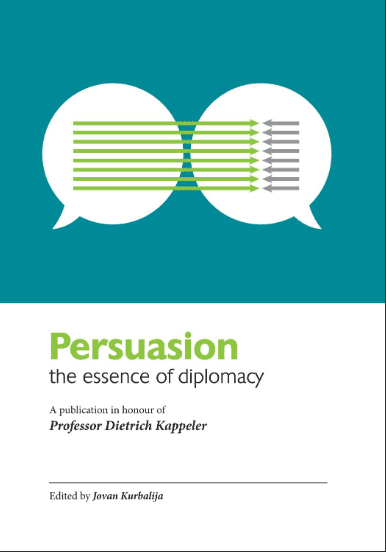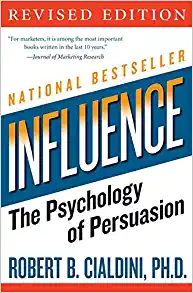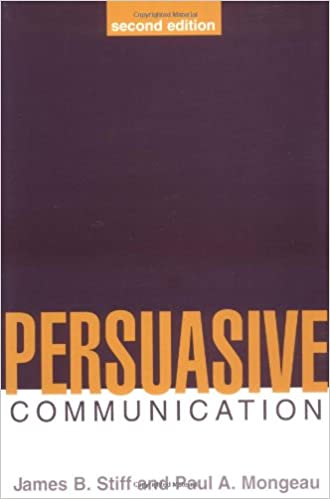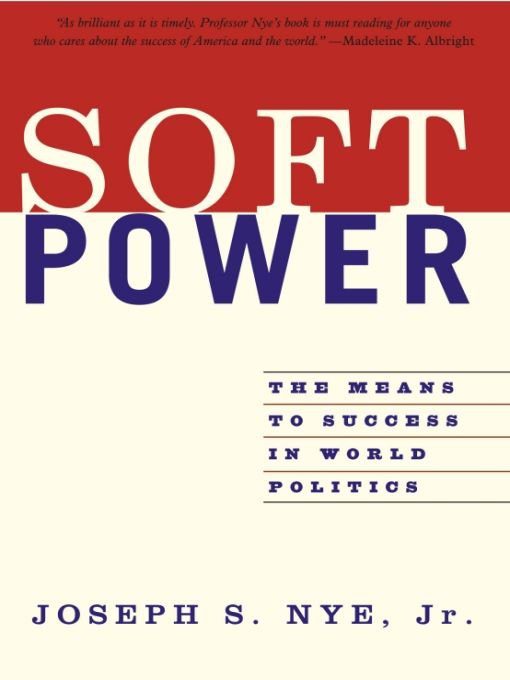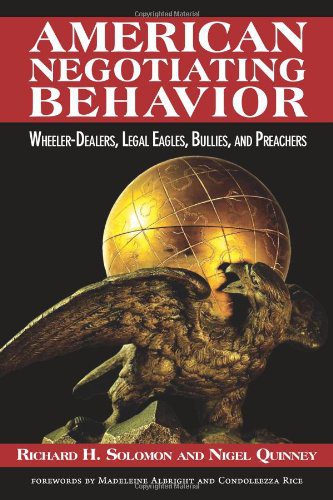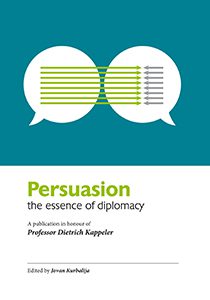Author: Andre Liebich
On the proper use of violence: reflections on the fall of the Soviet Union
2013
On the night of 3rd to 4th June 1989, the Chinese authorities gave the order to suppress demonstrations in Tiananmen Square. For several weeks, thousands if not hundreds of thousands of people, mostly students, had been demanding democratic reforms. They did not put into question the socialist regime but their demonstrations were not authorised and they inspired a similar movement in a number of other cities.
At first, the Chinese leaders were at a loss to cope with the events. The proclamation of
martial law on 19th May did not put an end to the movement of contestation and two schools emerged within the Chinese leadership. Zhao Ziyang, Secretary General of the Communist Party, denied the counter-revolutionary character of the demonstrations and called for conciliation, going in person to Tiananmen Square to talk to the crowd. Deng Xiaoping, Chairman of the Military Commission and the real power in the country, gave the head of government a mandate to repress the movement. Military units, backed by tanks, emptied the Gate of Heavenly Peace. The victims were numerous, estimates ranging from a few hundred to thousands of deaths.
The world reacted with dismay. Nevertheless, repression continued in China, with the mass arrest of protesters and their sympathizers, even those in very high places, and with the imposition of strict controls on freedom of expression. The United States and the European Union levied sanctions; indeed, the embargo on delivery of armaments to China persists until this day.
In the final analysis, the Chinese regime, a one-party and nominally socialist dictatorship,
survived and it is even doing very well nowadays. The People’s Republic of China is being
courted by all countries of the world. It is experiencing an economic boom, uneven in its
effects, but one that has been sustained over time. The weight of China continues to grow on the world stage. The country arouses respect and admiration; the bloody Tiananmen
crackdown is but a distant and fading memory.
It is the contrast between the course of events in China, which I have just described, and that in the Soviet Union which prompts these reflections on the proper use of violence. If we were to seek a Soviet analogy to the challenge the Chinese leaders faced on Tiananmen Square, we might refer to the Fall of the Berlin Wall, very close in time to Tiananmen and equally dramatic. The events in Berlin on the night of November 9th 1989 occurred far away from the Soviet capital, but they took place at the epicentre of Soviet international legitimacy.
Although it was a contingent, chaotic and spontaneous event, the Fall of the Berlin Wall had an immense bearing on the Soviet position in the world. Far from using the troops it possessed in the vicinity of the Wall, Moscow looked at the upheaval, with equanimity and even impassivity The situation was different in Vilnius on January 12th 1991. Faced with a popular movement in Lithuania, authorities in Moscow issued a warning calling for strict compliance with the Soviet constitutional order. Before a central government delegation could arrive in Vilnius to investigate the situation, military units had taken over radio and television installations by storming their facilities in the Lithuanian capital. Fourteen people were killed and hundreds injured. Mikhail Gorbachev, the CPSU Secretary General and recently elected head of state, denied having personally given the order to suppress the demonstrations but he did not escape responsibility for this act. Indeed, the real perpetrators of repression were not clearly identified and thus there were no sanctions issued.
This brief review of facts does not aim to introduce a comparison of the various crises that we
have mentioned. Its purpose is to set the stage for an inquiry into the reflections that two
classic authors have offered on the topic of violence and to raise questions about the relevance of their observations, formulated, of course, far from the context that concerns us here. As is clear from the cases evoked above, we have before us two scenarios related to the last days of the Soviet Union. The first case is one in which Gorbachev and the Soviet leadership refrain from any use of violence, as they did in Berlin. The second case is one where they employ force, as in Vilnius, but without attaining the results sought, and even bringing about a deterioration of their position. Clearly, these events raise the issue of the proper use of violence an issue that has been considered, we shall see in this essay, by Vilfredo Pareto as well as by Niccolò Machiavelli.
II
The first of these two classical authors, to whom we shall now turn,. Vilfredo Pareto (1848-1923), is known among successive generations of students of economics as the author of the ‘Pareto Optimum’ or the ‘Pareto Efficiency’ principle. He is also acknowledged as an eminent sociologist, celebrated, among others, by Raymond Aron who wrote a preface for the French version of Pareto’s Treatise on General Sociology. [ Vilfredo Pareto, Traité de Sociologie générale, préface d’e Raymond Aron, Oeuvres complètes vol 12. Genève: Libraire Droz, 1968. I wish to thank Pierre Hassner who put me on the trail of Pareto. The references are to paragraphs according to which Pareto’s Treatise is organised.]
It is the historical experience of Louis XVI that inspires the thoughts of Pareto on the use of violence by political authorities. Pareto is not tender towards the unfortunate king. He reminds us that an established power possesses tremendous resources and benefits. It can draw on this capital in order to maintain himself or to adapt to the changing circumstances.
‘…when a governing class or nation has maintained itself for a long period of time by force and has enriched itself, it can survive for some time more without making use of force: by buying peace with its adversaries, paying for it with hard cash as well as obtaining it at the cost of honour and reputation … ‘(§ 2059)
According to Pareto, the King of France could have slipped into the role of a constitutional
monarch:
‘Squandering in a short period of time the heritage of his ancestors, a heritage of love,
respect and almost religious reverence towards the monarchy, Louis XVI, could have, by
continuing to make concessions, made himself into the king of the Revolution.’(§ 2059)
If we change our perspective to consider the case in question, we are tempted to ask whether Gorbachev could have transformed himself into the president of a multiparty and
multinational country which would have succeeded the Soviet Union as we knew it?
Considering what we have read in Pareto, the obstacles are clear. Gorbachev was not in
possession of any of the personal assets of a hereditary sovereign. But, nowadays, there is
another type of heritage that carries much more weight. By being elected president,
Gorbachev had behind him the immense prestige of the Government and the halo of
statehood. He was the heir to a historical myth, that of the creation of the first socialist state in the world and of the victory over fascism. He was the holder of a legitimacy that issued from his country’s status as a Super Power. He possessed the vast resources of a huge country that functioned poorly but in which people lived much better than they had lived in a still recent past.
For Pareto, leaders who do not take advantage of their assets, do not deserve any compassion. Pareto says:
‘We do not recall the example of Louis XVI of France, who believed that he was
able to stop the Revolution by his veto: it was the illusion of a man deprived of sense and
courage.’
Or even,
‘If Louis XVI had not been a man with so little sense and even less bravery, who let himself be killed without fighting, who preferred to lay his head on the guillotine rather than fall bravely, arms in hand, it may have been he who would have destroyed his opponents’ (§ 2180).
It is difficult to see Gorbachev, sword in hand, engaged in a deadly duel with, say, Boris
Yeltsin. Nonetheless, Pareto’s thesis is clear:
‘Louis XVI fell because he did not want to, did not know how to and could not use force: while the revolutionaries were victorious because they wanted to, knew how to and could use it’ (§ 2201).
According to Pareto, abstention from violence, the neglect of violence shown by the King could be explained in terms of moral weakness and a failing intelligence. Can we attribute the same defects to Gorbachev?
It seems to me that before making such a judgment on Gorbachev, according to criteria that are yet to be defined, we must turn to what he says himself. The memoirs of politicians are, by definition, apologetic. Yet the very way in which one formulates an apology or justifies oneself is meaningful. If we look into the Memoirs of Gorbachev, we see that he does not avoid the issue of violence. Speaking about riots in Sumgait, an eruption of ethnic violence in the conflict between Armenians and Azerbaijanis in 1988, Gorbachev says:
‘We have often been accused of “showing weakness”. But when we were forced to bring in the militia and military units to avoid bloodshed, we again fell under the fire of criticism, this time for using force. There is no doubt that the government had to act in the way they did. Extreme measures were due to extreme circumstances. The same thing would have been done in any democratic state.’ [Mikhail Gorbachev, Memoirs, New York: Doubleday 1995, p. 335 (my translation – A.L:).]
The same plaintive note comes through in his defense of a severely criticized decree in January 1991, entitled, On The interaction of the militia and units of the armed forces in law enforcement and the struggle against crime. Gorbachev insists:
‘ I saw nothing reprehensible in allowing assistance to be given to the militia by garrison servicemen to maintain order in the city … Obviously, I could not have anticipated that the decree would be discredited from its inception because of stupid orders issued b local commanders’ (p. 582).
Here we see the Gorbachev Line in all its complexity. ‘The main thing is to use political
methods’, he says in his Memoirs. (p. 335) If ‘political methods’ do not work, we are obliged
to resort to force. According to Gorbachev himself, it is a centrist position that he is adopting.
Surprisingly, it is to the words of Alexander Solzhenitsyn that Gorbachev turns in a flurry of self-justification. According to Solzhenitsyn, as cited by Gorbachev:
‘The most difficult task in social development consists in tracing a centre line. It does not help to invoke the throat, the fist, the bomb and iron bars. A centre line requires utmost self-control, the most steadfast courage, the highest degree of deliberate patience as well as the most precise knowledge’ (p. 589)
Contrary to Pareto’s accusations against Louis XVI, Gorbachev would not have been reluctant to use force against his opponents when it was required. Yet, there is a persistent suspicion that Gorbachev is the Louis XVI of the present day. The Armenian president, Ter Petrossian, put it succinctly, ‘the center committed suicide’. [Quoted (without a source) in Michael Mandelbaum, ‘Coup de Grace: The End of the Soviet Union’, Foreign
Affairs 71:1 (1991/1992) p. 165.] This does not mean that Gorbachev
consciously sought the destruction of the Soviet Union; it suggests, rather, that Gorbachev did not resist its destruction, Gorbachev did not use the violent means available to him to defend what was essential.
Although Pareto applies the same analysis in terms of ‘suicide’, not only to Louis XVI but
also to other French political regimes, he expresses reservations with regard to the image of ‘suicide’. Pareto quotes an author who is reputed to have stated that ‘there is only one way for governments to perish: by committing suicide’ but Pareto finds this statement to be ‘a bit too absolute’ (§ 2201). Retreating from his own affirmations, Pareto writes:
‘Why have some governments used force while others have failed to use it? It may not be accurate to say, as we have just done, that the fall of a government occurred because it did not use force; because if there were any facts on which the non-use of force depended, these facts would clearly be the cause of the phenomena, while the failure to use force would only be an apparent cause.’
Indeed, this statement stands in considerable contrast to Pareto’s earlier statements.
One could follow this train of thought in a profitable manner when it comes to the Soviet case. What were the facts on which the non-use of force might have depended? Surely we must admit that Gorbachev disposed of means of repression sufficient to give the order for their exercise? Lack of such means might have been the problem of Nicolas II in March 1917 or of Kerensky later that year. It was not Gorbachev’s problem. As the events of Vilnius and other similar incidents demonstrate, law enforcement agencies were just waiting for the moment to act. How can one then explain the Gorbachev’s restraint? Was it a boundless confidence in himself, a mixture of optimism and arrogance that made him believe he could solve everything, make things right, without resorting to tanks or mass arrests? Was his credibility, both inside and outside his country, based to such an extent on the image and ideology he had created himself – ‘The main thing is to use political methods’ – that he became the prisoner of it? Or, must we admit, as Kolakowski has proposed, that Gorbachev had no real purpose: his whole approach lay in the process itself? [‘It became increasingly clear that he had no precise (or even imprecise) plan, that perestroika was an empty word (glasnost was not), that he reacted to events generally unprepared, in haste’, Leszek Kolakowski, Amidst Moving Ruins, Daedalus 121:2 (1992) p. 49.] If one does not know the destination, one cannot know the means for how to get there either.
Pareto’s arguments and the observations we are drawing do have their share of truth but, as we have seen, they do not entirely resolve the problem at hand. The fact is that Gorbachev did (sometimes) use the means of repression, force and violence. Except that he, obviously, did not use them well and did not use them in a timely fashion.. Let us now put behind us Pareto with his glorification of violence and his failure to address the circumstances of its use, and let us move on to the most famous of authors who has spoken about the problem that we are addressing here.
III
If Niccolò Machiavelli (1469-1527) had dedicated his book, The Prince, to Mikhail
Gorbachev rather than to Lorenzo di Medici, he would not have needed to change much.
Taking the typology developed by Machiavelli, the situation of the Soviet Union in 1985
corresponds most closely to the Principality where the prince becomes a citizen neither
through heredity nor ‘through crime or intolerable violence’ (Chapter IX). The mode of
acquisition of power in these principalities requires cunning and luck (fortuna) but it relies, in one way or another, on the ‘support of fellow citizens’. The first type of such support is that of the people. It is the one that makes governance easiest because ‘the people long only not to be oppressed’. The other form of support is that of the aristocracy, which is what Machiavelli would have called the ‘central nomenklatura’ or the political elite of the USSR.
‘Whoever becomes prince with the help of the nobility will have more difficulty to retain power than he who is raised by the people because he is surrounded by people who believe themselves to be his equal and he is thus unable to direct or to order as he wishes.’
Such a prince must seek above all to win the favour of the people. That would be easy enough if he would protect the people, since men who receive benefits from those from whom they expect miseries do feel a greater obligation towards their benefactors. As for ways of winning the support of the people, Machiavelli tells us that there are many but they vary depending on the circumstances and a rule cannot be established.
‘I conclude only that it is necessary for a Prince to be loved by his people, otherwise there is no remedy whatsoever in his adversities.’
We are not going to enumerate the ways in which Gorbachev failed to win the favour of the people. It will be sufficient to recall, without concluding that such means would have beeneffective, that he could have used the instrument of violence to assert himself and to remain in power. Violence is an option that is, of course, uppermost in Machiavelli’s mind. He cites with approval the behaviour of Cesare Borgia towards a cruel and competent minister who had been given the authority to restore order and unity in the country. Having implemented effectively his mandate, the minister had also inspired hatred among the population. Borgia therefore condemned the minister, cut him in half, and placed the corpse with a log of wood and a bloody knife in the middle of the square. ‘The ferocity of this scene caused the people both satisfaction and amazement’, concluded Machiavelli (Chapter VII).
But The Prince is not an apology of violence. Machiavelli carefully studies the dosage and appropriateness of the use of force.
‘You can refer to this cruelty as good (if it can be said that evil has good in it) due to the fact that it occurs only once, by necessity of security and then does not continue further ….’ (Chapter VIII).
In fact, in order to act ruthlessly only once one must act severely, promptly and expeditiously. According to Machiavelli, ‘.. by taking a country, whoever occupies it must consider all the cruelties that are necessary for him to realize and all the means at the same time’, in order ‘not to return to that topic everyday and to be able to, by not enforcing them again, reassure men and win over their affection by exerting kind deeds’.
Could Gorbachev have profited from the lessons of Machiavelli? It seems to me that we can draw two lessons from a reading of The Prince in relation to the case that is of interest to us. The first is that Gorbachev was wrong not to pursue relentlessly the party leadership which had brought him to power and that had led the country so badly, as
all concerned would agree. Of course, Gorbachev did appeal to the intelligentsia or to other
fractions of a virtual civil society to counter the resistance or even the opposition of his party.
He took away from the party its leadership rôle and even, in extremis, he authorized the
dissolution of the party. These gestures, carried out in small steps, quietly and reluctantly, did not succeed in winning over what Machiavelli calls ‘the love of the people’. Gorbachev
deprived the people of a spectacle, an amazing and satisfying spectacle, that would have
offered them the destruction, at least in a figurative sense, of a collective or individual
scapegoat.
The second lesson of The Prince is that one must commit one’s share of violence or cruelty the sooner the better and at one go. The prudence, or even the trial and error process, that
characterized the reforms of Gorbachev stand in total contradiction with such an injunction.
Gorbachev might have been able to make up for his initial errors, but by then the opportunity, the right moment, was missing. The first time that Gorbachev faced a direct dramatic challenge, comparable to that of the Tiananmen Square events, was on the occasion of the August 1991 attempted coup d’état. Here was an opportunity to deal ruthlessly with the instigators of the coup or align himself with them and thus endow them with the effectiveness they were lacking. But Gorbachev had put himself out of the game. His rival, Boris Yeltsin, seized the moment and thereby experiences a crowning moment of which there would always remain a few bits of glory despite the failures and betrayals that followed. We may recall the image of Gorbachev returning from Sochi after the failed coup d’état, as a small, bent and weak man. He had nothing left in him of The Prince.
IV
‘Nobody is so old that he could not survive for one more year’ [ Kolakowski, p. 45.] Even if the days of the USSR were counted as are those of any political formation, its disappearance in December 1991 was not a matter of predestination. Other circumstances as well as other policies could have led to a different outcome. Among the variables relevant to such alternative policies is that of violence. By using the extensive forces of repression at disposition of the Soviet state, Gorbachev could have – perhaps – inflected the course of history.
We can sigh with relief that Gorbachev did not act otherwise than he did. Whether due to moral scruples, ideological blindness, lack of opportunity or lack of imagination, the reasons for his inaction continue to elude the historian. And we do not cease to wonder that, when Gorbachev did resort to violence, his attempts stopped short and halted neither the dissolution of a powerful empire nor the radical transformation of the regime. We are relieved to note that so little blood was shed at the center, and we can only regret that this was not the case on all the Soviet peripheries during this period as well as in the period that followed. But we still cannot comprehend that Gorbachev and the Soviet leadership let matters develop as they did.
This misunderstanding seems to be shared by the post-Soviet population which, according to all polls, regrets the disappearance of the Soviet Union. [According to a poll conducted in Summer 2006, 66% of the Russian population regrets the disappearance of the
Soviet Union; 57% believes that it could have been avoided. RFE/RL Daily Report, 21 August 2006.] No wonder that, the population supported President Putin who, in all likelihood, also does not comprehend why his Soviet predecessor did not want to or failed to use violence. In contrast to what had happened earlier, in 1993, during the assault on the Russian Parliament, the first President of the Russian Federation, Boris Yeltsin, showed that he was unwilling to commit the mistake of his Soviet predecessor. One may suppose that the present and future presidents of Russia will be inclined to ponder these lessons.
